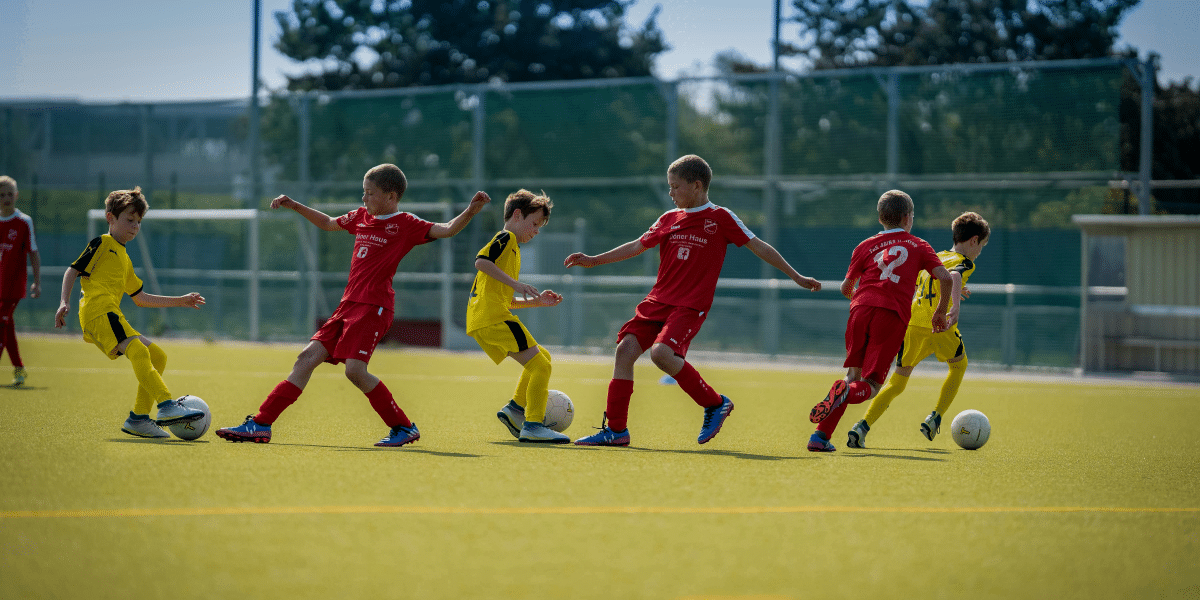As a parent, it is important to nurture a child’s innate abilities and support them in activities that boost their overall development. This is especially true today as digital entertainment options such as video games and tablets have become a popular pastime, often becoming a substitute for outdoor play. While these devices can provide educational and interactive benefits for young children, their overuse can contribute to a more sedentary lifestyle for many children, which can influence their overall health and well-being.
When seeking activities that offer both physical stimulation and skills development for a child, soccer can be an excellent choice. In this article, we will dig into the many benefits of this team sport for young children, helping them cultivate valuable skills both on and off the field.
Physical Development
Soccer is a fun way for children to channel their energy and get their hearts pumping. The various drills, exercises, and gameplay they will experience during a session can give their cardiovascular system a workout and inspire them to become more active in other areas of their life.
This is especially beneficial for young children who do not engage in regular physical activity or are reluctant to play other sports. In addition to aerobic exercise, playing soccer can also help strengthen a child’s muscles and improve their bone strength, flexibility, and stamina.
Motor Skills
Soccer can help children develop their motor skills. Exercises such as dribbling, passing, and shooting the ball are great for fine-tuning their eye-to-foot coordination and spatial awareness. These fast-paced yet precise soccer techniques require focus, control, and balance, making them ideal for cognitive and sensory development in young children.
Children as young as one can begin gaining the benefits of soccer by joining a toddler soccer class, helping them develop essential motor skills early on in life.
Teamwork
Children can begin learning the benefits of teamwork and working towards a common goal through playing soccer. This team sport encourages children to collaborate and work together rather than solely compete against one another.
As a result, children can learn valuable skills, such as kindness and respect, at an early age, which helps them become more tolerant and patient. Teamwork allows children to celebrate their successes together, helping them feel part of a bigger community where their individual contribution is still recognized and valued.
Confidence-Building
Soccer can help young children come out of their shells and develop the essential skill of confidence. Playing a new sport will encourage a child to come out of their comfort zone and offer them opportunities to display their newfound skills on the pitch.
Children will feel their confidence boosted as they become more proficient in their gameplay. Whether it’s scoring goals, saving penalties, or making key passes to their teammates, each accomplishment will further cement their sense of victory and help reinforce their self-esteem and belief in themselves.
Socializing
Engaging in sporting activities at a young age can be a great way for young children to socialize and make new friends. The natural camaraderie and sportsmanship taught through team sports such as soccer can help children develop valuable social skills that will serve them well throughout their lives.
From empathy and support to cooperation and playfulness, learning how to socialize with other children is an important life skill and one that can be particularly beneficial for young children who are more introverted or find it difficult to connect with others.
As highlighted, soccer offers young children innumerable benefits to enhance their health and well-being and helps them develop valuable skills that enable them to shine in every area of their lives.
Published by: Nelly Chavez
















